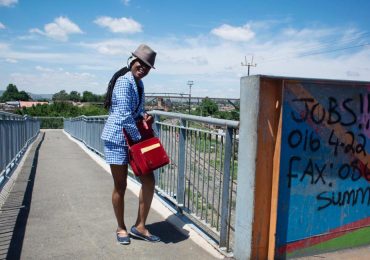The JRB presents an excerpt from Zanele Muholi’s new book Somnyama Ngonyama, Hail the Dark Lioness, Vol. II.
Somnyama Ngonyama, Hail the Dark Lioness, Vol. II
Zanele Muholi
Aperture, 2024
Photographs by Zanele Muholi
Edited by Renée Mussai
Texts by Sophia Al-Maria, Phoebe Boswell, Tina Campt, Alexis Pauline Gumbs, Aluta Humbane,
Ntsiki Jacobs, Renée Mussai, Porsha Olayiwola, Lola Olufemi and Legacy Russell
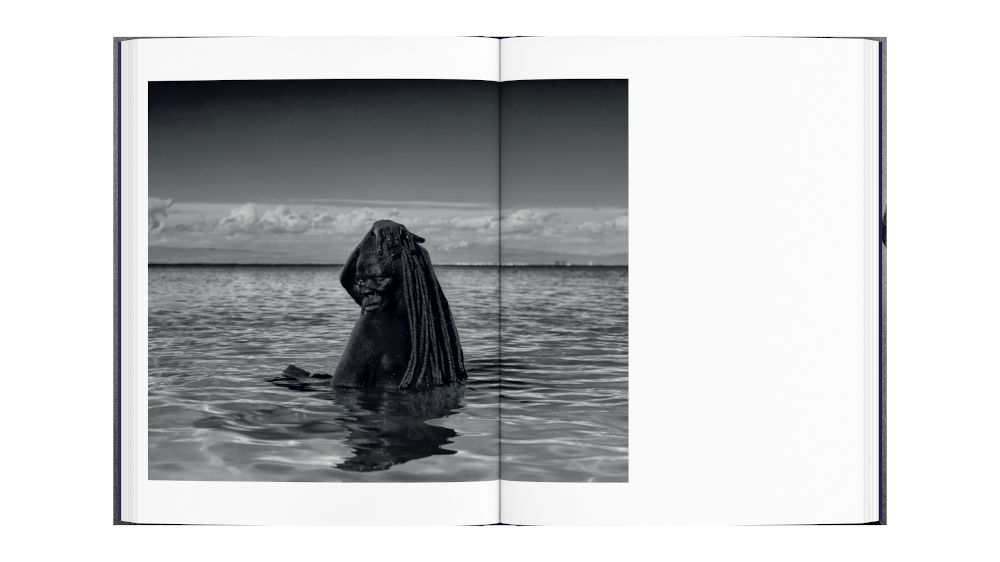
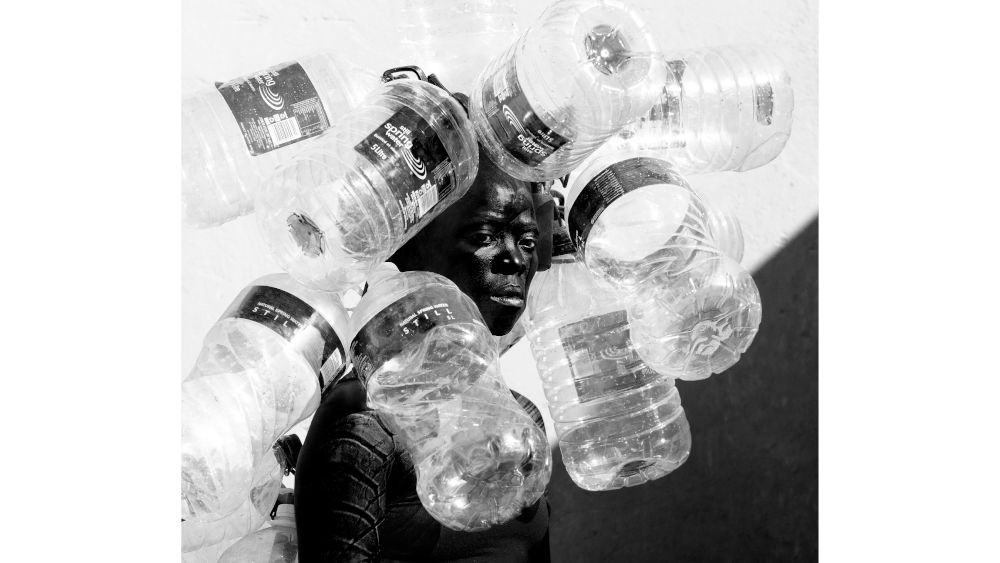
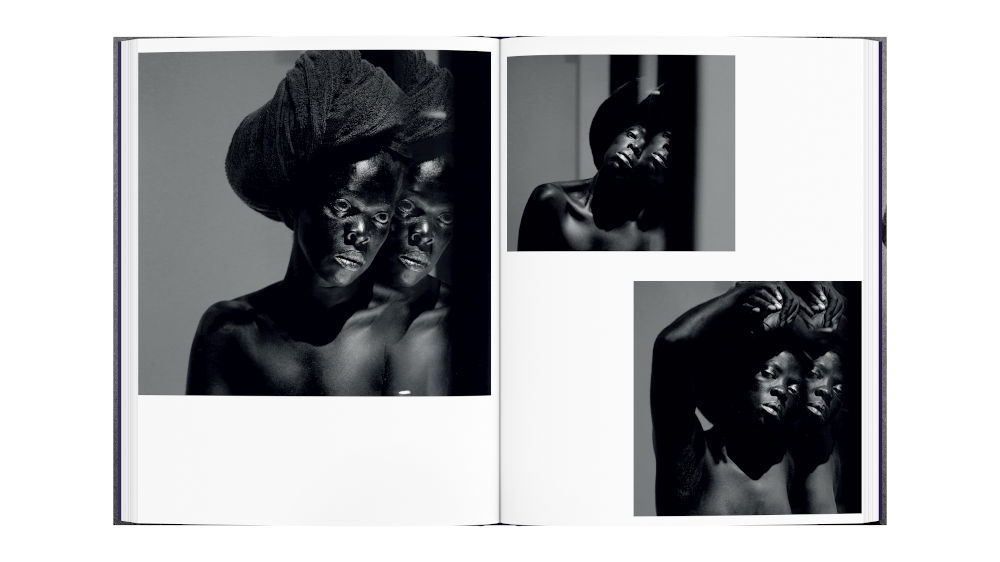
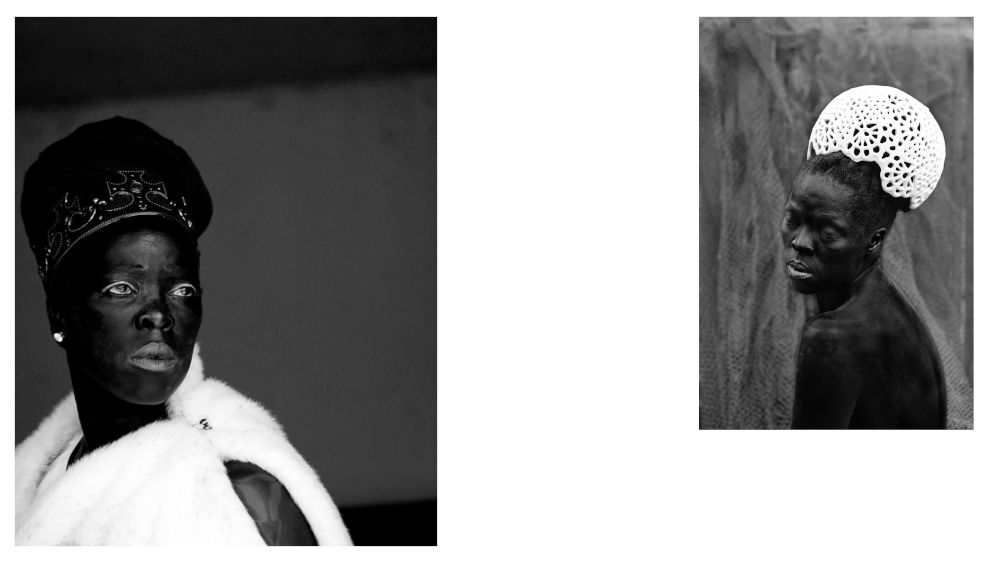
Read a short excerpt from an interview between editor Renée Mussai and Zanele Muholi, from Somnyama Ngonyama, Hail the Dark Lioness, Volume II:
Renée Mussai: Can we talk a little about how things may have changed since we published the first Somnyama Ngonyama volume in 2018? The direct references to current and past events seem to have diminished a little, for example. There is a new kind of emergent intimacy.
Zanele Muholi: My personal life was complicated. So much has happened since then. Family and friends were lost, a pandemic unfolded—different experiences which changed my creation process and the images I produced. Most of the portraits in the series are informed by my personal experiences, and the aftermath of these events. For every loss a new image was made, unless one was too depleted to create. In April 2022, Durban, my home and birthplace, was hit by terrible floods—hundreds of people died, and many homes were destroyed. I produced work in response to this catastrophe. Somnyama is, and always was, a response to such events—events that touch me deeply, even if the immediate reference and connective tissue is not always obvious to the naked eye.
Renée Mussai: Did you make Manzi I—the portrait in the water [pages 12—13]—in response to the flooding and mudslides in KwaZulu-Natal? I really love this image: here you are submerged in the ocean, looking back at us, one eye closed, the other open, probing, like a mythological marine creature. The isolated drops of water appear like extra-dermal particles resting on your darkened skin, glistening, your body extending. liquidizing into the sea …
Zanele Muholi: Yes, I did. But it’s a complex image for me, with complex meanings. Water can be weaponized, and I wanted to express the illusion or sensation of calm and serenity that the sea can convey, while also being reminded of its danger, its sheer force. Emerging from this water reflects the importance of spiritual cleansing. I am referencing the idea of being drawn underwater and being rejuvenated by water. I connect to water when I am feeling down, and in need of stillness—yet I was also contemplating how the same calm waters could be dangerous, how all the waste was channeled into the sea, how the sea had to be cleared, and how much was lost in Durban during the floods. For me, there is both a danger and a sense of calm expressed in this image. It’s very beautiful to me too—but at its core, it was not originally meant to be beautiful.
~~~
- Zanele Muholi (born in Umlazi, Durban, South Africa, 1972) is a Johannesburg-based visual activist and photographer, co-founder of the Forum for the Empowerment of Women, and founder of Inkanyiso, a forum for queer and visual media.
- Renée Mussai is the artistic director and chief curator at the Walther Collection and was formerly the senior curator and head of curatorial and collections at Autograph ABP, London.
~~~
Publisher information
In this, the highly anticipated second volume to their widely acclaimed and celebrated self-portrait series, Zanele Muholi explores and expands upon new personas and poetic interpretations of personhood, queerness, Blackness and the possibilities of self.
Since the publication of the first volume in 2018, Muholi has continued to photograph themself in a range of new international locations. Drawing on material props found in each environment, Muholi boldly explores their own image and innate possibilities as a Black individual in today’s global society, and—most important—speaks emphatically in response to contemporary and historical racisms.
Renée Mussai, curator and historian, brings together written contributions from more than ten curators, poets and authors, building a poetic and experimental framework that extends the idea of speculative futures and the potentiality of multivalent selves.
Powerfully arresting, this collection further amplifies Muholi’s expressive and radical manifesto. As they state in the first volume, ‘My practice as a visual activist looks at Black resistance—existence as well as insistence.’



